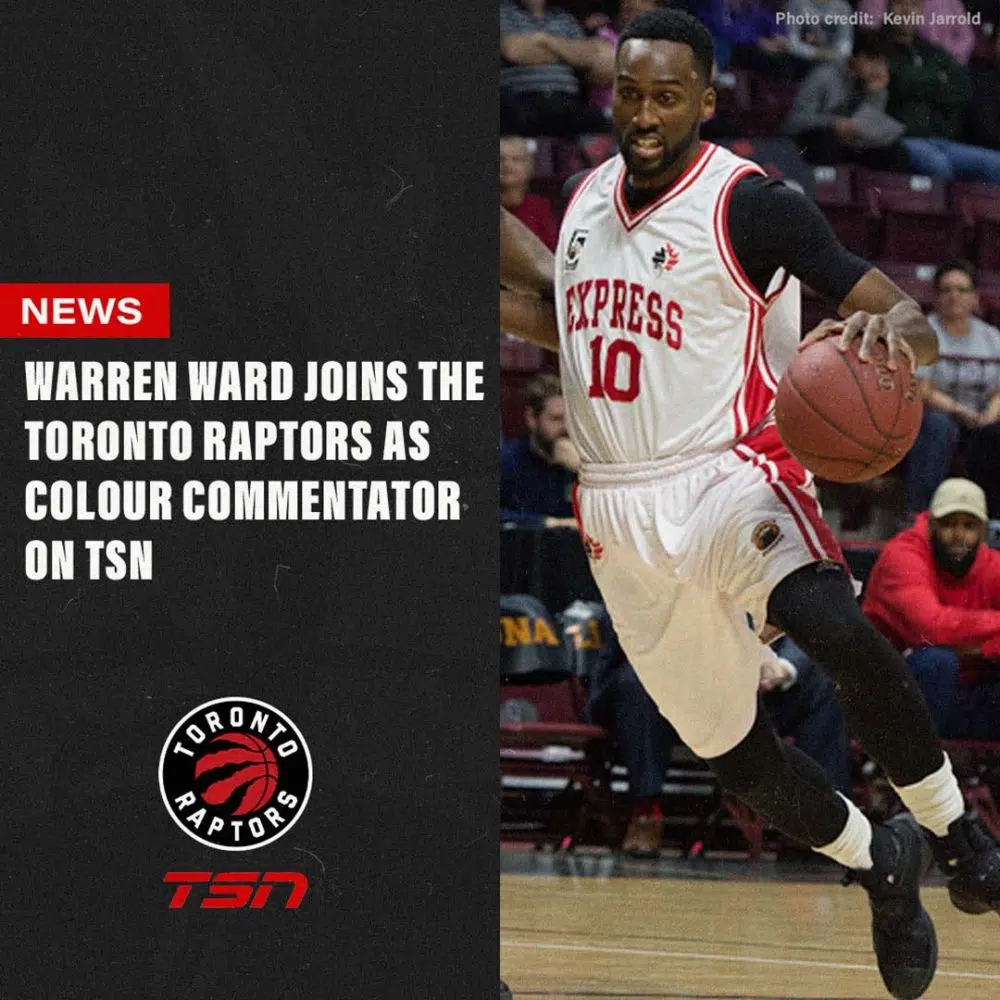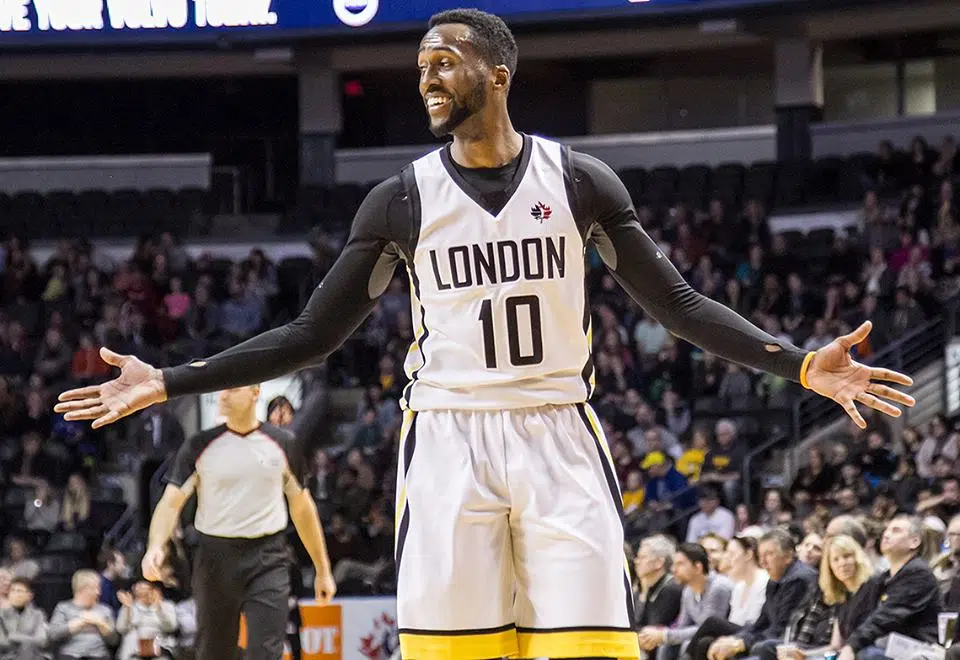
Ward was calling the Raptors game on Friday March 18th on TSN 1050 / Source: NBLC
“Ball is life but life is not ball.”
That’s a quote from former NBLC Canadian Player of the Year Warren Ward.
The 6’5 small forward averaged over 14 points a game in his NBLC career and was a threat from deep, shooting 41% from behind the arc over 39 games with the London Lightning. However, we are not celebrating Ward’s excellence on the court. It’s what he’s made of himself off the court. Ward called his first NBA game on Friday night on TSN 1050 when the Raptors played host to the LA Lakers.
After dealing with injuries that derailed his playing career, Ward saw an opportunity to work in basketball, but not in the way he was used to. Ward comments on the transition from the court to the booth and why he was passionate about pursuing a broadcasting career.
“Well, I mean I like to talk I guess,” said Ward. “I don’t think there’s anyone more qualified to talk about basketball than the people that have actually done it. I find most of the media personalities that we have around the world never played, and for someone like me, I was always bothered by that, because they’re the same people who are sometimes overly critical of athletes. It’s almost like me critiquing a lawyer.”
Ward spent three years in the NBLC with three different teams. He played for the Mississauga Power, the London Lighting and the Windsor Express. Prior to joining the Power, Ward played in France. He explained how a contract dispute opened up the opportunity to come home to Canada.
“I left the team I was playing for in France and the Mississauga power reached out to me literally, before I basically even got off the plane. They were the first team to reach out, it was close to home and it was a good deal. So I figured I’ll play here for a couple months and then I planned to go to play in the NBL in Australia. So that’s where it first started for me playing here. I was just trying to stay in shape and play for two months,” said Ward.
Ward of course did not end up going to Australia. He loved playing at home and when asked to reflect on his time with the NBLC, he said he “had a lot of love for the league.”
“The NBL was great. The games were fun,” said Ward. “The schedule was tough at times, because sometimes you’re playing four games in a week. It’s pretty tough to do that, at any level. So that has probably been one of the only things that I would change but other than that, it was a phenomenal time and it really helped me to get back to the same level I was playing at prior to injury.”
Ward also mentioned how much it meant to him to play for London where was born and raised and not just play, but earn Canadian Player of the Year honours in his hometown.
“Oh, that was great. I mean, that came from injury actually. I tore my Achilles playing for the Mississauga Power and then Vito Frijia (owner) and Kyle Julius (head coach) gave me the opportunity to go to London and play in my hometown. Then I had a stellar season. Coming back from injury, that was probably the most significant year and I’m very thankful for the NBL, especially Vito. He really helped me with the physiotherapy, so special shout out to him.”
After Ward’s third year with Windsor, he went back overseas to play in Spain. After another injury that resulted in a third surgery, Ward decided to call it a career. An opportunity came up to call games for the Raptors G-League team, the 905, he gave it a shot.
“After my third surgery, I said what else in basketball, if anything, would I do? I never wanted to be a trainer, never had a passion to be a coach, so I just combined the way that I see the game,” said Ward. “Now I’ve given another platform to go ahead and talk about that. I want to encourage other athletes to do the same thing, because, for me personally, I just think it’s the best way to communicate basketball. What other way can you do that?”
Ward loves his new job and it is something that he’s very good at. He expressed his gratitude towards the NBLC for those extra years of playing because he knows that may never have become a broadcaster if it weren’t for his tenure back home.
“I can’t say how it helped me become a broadcaster, but I just know, the NBL gave me another platform to play. I played there for two and a half years out of my six and a half year career which was ridden with injury. So without those two and a half years, I wouldn’t be here now.”
Ward is undoubtedly one of the many success stories of the NBLC and says he has no particular goal moving forward in his broadcasting career, but will seize every opportunity that comes his way. Ward isn’t only a success story from our league, he is also living proof that there is more to life after competition for athletes. Ward wanted to give advice to fellow athletes who may not know what to do next after they hang up their sneakers.
“You need to know that life goes on after basketball. You know ball is life but life is not ball. You have to separate your identity from basketball, basketball is what you DO. It is NOT who you are. [Also] find something that gives you the same kind of joy outside the game because eventually, your time is going to come to stop playing. There’s so many other ways to contribute to basketball. So whenever you do stop playing, this is just another avenue.”






Comments